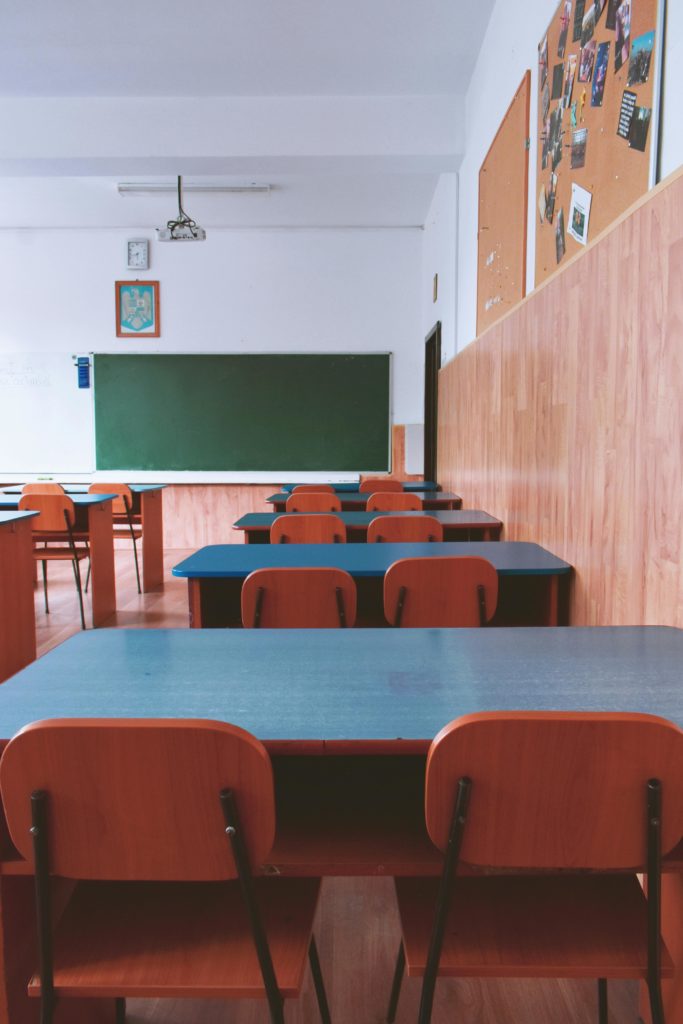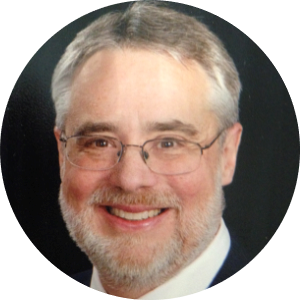
On Returning to Campus:
What Might We Learn from Christian Ethics?
Paul Lewis
Photo by Polina Zimmerman from Pexels
COVID-19 presents colleges with precisely the kind of problem that those of us in the liberal arts claim that we are preparing people to address in responsible ways. The pandemic confronts us with what academics call an unstructured problem: one that has many layers and for which there is no easy answer.
Ethicists, of all academics, ought to be weighing in; for we have long specialized in forcing people to make hard decisions with too little information in crisis situations — often forgetting in the process that our decisions are grounded in what kinds of people we are. A self-centered person will be disposed to make a different decision than a more pro-socially oriented person.
But we dare not get so bogged down in character traits that we forget the need to make decisions. We can, however, bring character and decision making together by promoting the master virtue of practical wisdom. That virtue is one in which our deliberations join sound reasoning with rightly directed desires that result in actions that fit the circumstances.
As I see it, engaging in practical wisdom requires that we address three questions: What’s going on? Who are we? and What should we do? Too often, we jump to that last question too quickly without doing adequate analysis of what’s going on or reflection on who we are. What follows then is an example of how a Christian practical wisdom might address these questions in light of the challenges facing college campuses this fall.
What’s Going On?
As far as the virus goes, we know that it has spread quickly around the world and caused millions of deaths. We know how the virus spreads. We know that the virus mutates quickly. We know that those who recover face long-term damage. We know that people who have recovered have antibodies that presumably confer immunity, but we also know that the antibodies do not last. We know that we have much more to learn about the virus.
For anyone who claims the name Christian, our actual moral vision needs to be interrogated by what we learn in the gospels about the kingdom or rule of God.
We know that people over 65 with compromised health are most vulnerable. We know that younger people are susceptible to the disease and while their experience is usually less severe, that is not always the case. We know that people can be asymptomatic and spread the disease unknowingly. We know that wearing masks, physical distancing, and increased sanitary practices help minimize the spread of the disease. We know that cases of COVID-19 are spiking in many areas around the country, especially among young people.
As far as vaccines go, we know that the soonest they will be available is early next year. We know that we don’t know how effective they will be. We know that they are being rushed, which may compromise safety. We know that we don’t know yet the cost of the vaccine or how quickly it can be administered at the scale needed to allow us to return to a life that approximates “normal.”
We know that testing is inconclusive. Someone who tests negative one day may be exposed the next or may be infected by the virus at a level that is not detectable. Someone who tests negative for antibodies may have some, but not at a detectable level.
We know that leadership has failed us. At best, we get mixed messages from federal, state, and local governments, as well as from churches and schools. Worse, we might get nothing but silence. Worse still, some leaders make plans and pronouncements that reflect magical thinking not grounded in current scientific and medical understandings, though those too have proven to be moving targets.
We know that, despite calls for people to be responsible, too many people, especially younger ones, are not exercising restraint as the country has opened up.
We know that there are multiple goods in conflict such that we can’t have it all at the same time in the measures we would like. One set of conflicting goods is that of public health and what we think of as a robust economy (this is true at the national, state, and local levels, as well as with institutions of higher education). Another set is the freedom to do what we desire and a responsibility not to harm others. A third is a robust intellectual experience for our students and the health of students, staff, faculty, and university communities. A fourth is a robust social life that is a legitimate part of the college experience and the health of students, staff, faculty, and university communities. I am sure there are more sets of conflicting goods, but these suffice. In short, we know a lot about what is going on, even though there is more to be learned.
Who Are We?

We all have a vision of a good life, be it material prosperity, political power, simple survival, or something else. Most of the time, that vision remains unarticulated and so we need to bring to the surface our own deepest convictions, those core convictions that if we were to violate them would indicate that we have sold our souls for the proverbial pot of porridge.
For anyone who claims the name Christian, our actual moral vision needs to be interrogated by what we learn in the gospels about the kingdom or rule of God. There we learn that only God is the ultimate good: not physical health (“fear not those who can kill the body”), not economic health (“life does not consist of the abundance of one’s possessions”), and not religious observance (“Woe to you…for you tithe…and neglect justice and the love of God”).
We learn that the rule of God means being especially attentive to the needs and the voices of “the least of these,” those who have been silenced and overlooked by those in power. We learn that the rule of God puts people above institutional survival (“the Sabbath was made for humanity, not humanity for the Sabbath”). We learn that the rule of God is characterized by the well-being of the entire creation, not just human well-being.
We also learn from Jesus that the rule of God is only at hand. At most then, we catch glimpses of God’s rule here and there, now and then. Still, we learn that we are called to embody that rule more and more, however imperfectly, where we live and work.
What Should We Do?
We should assess the live options and act on the one most in line with this guiding vision. I see three broad options for action, the first of which is to return to campus as normal. This one can be dismissed easily. Although it promises a return to a normal, in-person, vibrant campus life, it simply cannot deliver. The easily foreseeable consequences of going back to normal are increased sickness, more deaths, and the loss of credibility and reputation that may shut down a school as effectively as not re-opening at all. This option is a non-starter.
The second option is not to reopen campus and provide education remotely. This option has several strengths: (1) It best prioritizes public safety in light of what we know of the disease. (2) It recognizes that despite pleas to exercise personal responsibility, those pleas will fall on too many deaf ears. (3) Remote education has worked tolerably well in a crisis situation as many faculty and students rose to the challenge of a sudden move to remote learning last spring with virtually no preparation. Therefore (4) remote learning can motivate learning as students and faculty truly become a learning community devoted to mastering a new set of skills.
Nevertheless, it is time — almost past time — for all of us to exhibit the informed, critical, and reflective thinking and action that liberally-educated people are supposed to be able to do.
As anyone following The Chronicle of Higher Education know, there are many weaknesses to this option. It will have a severe economic impact on schools as they would lose revenue from tuition, fees, athletics, housing, cafeteria, and other areas of campus life. Doing remote education effectively requires significant investment in technology and training for faculty and those costs will only add to the economic stress institutions face. Most students and faculty want in-person instruction. Remote instruction will require time to train faculty in best practices and the time is short. Some students are in less than conducive home situations and/or do not have access to adequate technology. It deprives students of the rich social life that is part of the higher education experience.
This option could work, however, if allowances were made for at-risk students to come to campus where they are in a safer environment and have access to technology for remote learning, and if schools offset losses by drawing drastically from contingency and endowment funds. Administrators will be loath to do the latter, but it may well be the best way to live to educate another day.
The final option is to reopen campus for face-to-face instruction by putting in place safety protocols such as wearing face masks, adjusting the academic calendar to minimize breaks, adjusting class sizes and/or locations to facilitate physical distancing, providing temperature checks, requiring regular COVID-19 screening and contact tracing, increasing sanitation protocols, upgrading technology to provide hybrid learning, requiring safety waivers, and drawing up codes of conduct.
This option, like the others, has several strengths. It does address public safety. It maintains a closer to normal educational experience for everyone. It is potentially more economically sustainable than option two.
This third option also has many weaknesses: It places too much confidence in testing and compliance, which we know are, at best, imperfect. Safety waivers carry dubious legal weight. Social life for students and faculty will necessarily remain stunted. Any face-to-face classes held under the conditions that are “safe” will be inferior to face-to-face instruction under normal conditions and likely inferior to good remote teaching. It will require massive expenditures to do the testing, upgrade the technology, provide PPE, etc. It puts at unnecessary risk students, staff, faculty, and the local community. Many buildings are old and do not have adequate ventilation systems. It will likely have to be abandoned early in the fall anyway, unless numbers change drastically. Since the risk of increased illness and deaths in both the campus and local communities remains high, the long-term effect on reputation, as with option one, could close a school as surely as bankruptcy.
Many colleges are choosing some version of this option. The only way this option might be effective is if a school allows faculty and students flexibility when it comes to choosing how they will deliver or receive instruction, requires and strictly enforces protocols and procedures from top to bottom of the university hierarchy, brings back only some students (e.g., freshmen one semester, seniors the next), and requires students who do come to shelter in place on campus.
From my perspective, the second of these options best approximates the rule of God, especially if we can find ways to get students and faculty the resources they need for good online education. This option prioritizes people over institutions, provides resources to the neediest, and acknowledges both the severity of the illness and the misplaced hope that the masses will comply with safety guidelines. In doing so it best protects people from an unpredictable and devastating illness.
In offering this reflection, I do not claim to speak for God. I have received no divine revelation, and even if I had, biblical stories suggest that most people would ignore it anyway. Instead of speaking a word from the divine, I speak confessionally, by which I mean that this is what I see as the wisest course of action given the information I have at this time.
I truly do not envy the pressures university administrators are under. There are many unknowns. Institutions vary such that some version of option three might be appropriate in some places, but not others. That is what makes responding to COVID-19 such a frustratingly unstructured problem. Nevertheless, it is time — almost past time — for all of us to exhibit the informed, critical, and reflective thinking and action that liberally-educated people are supposed to be able to do. ♦

Paul Lewis is Professor of Religion in the College of Liberal Arts and Sciences at Mercer University in Macon, GA. He is the author of numerous articles and two books: Wisdom Calls: The Moral Story of the Hebrew Bible and Faithful Innovation: The Rule of God and a Christian Practical Wisdom.
Recommended Citation
Lewis, Paul A. “On Returning to Campus: What Might We Learn from Christian Ethics?” Canopy Forum, August 14, 2020. https://canopyforum.org/2020/08/14/on-returning-to-campus-what-might-we-learn-from-christian-ethics/

